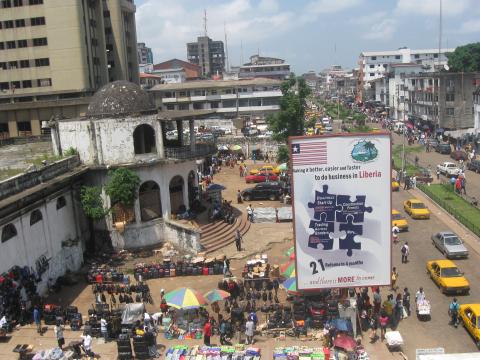Open Contracting is a Game-Changer: Opening Up Governments & Busting Silos
One of the many reasons I look forward to the Open Government Partnership Summit in London is the opportunity to focus attention around open contractingA transparent procurement process, known as open contracting, increases competition, improves public service delivery, and ensures governments better value for their money. Technical specifications: C... More.
At first glance, open contracting – the movement to make public contracts available, accessible, comparable, and searchable, and to enhance citizen participationAccording to OGP’s Articles of Governance, citizen participation occurs when “governments seek to mobilize citizens to engage in public debate, provide input, and make contributions that lead to m... More in the contracting process– may not seem like the most glamorous topic. However, I believe it’s a game-changer. Here’s why:
Contracts represent trillions of dollars. Each year, approximately $9.5 trillion is spent through government contracts. The ability to know exactly how those public funds are spent – how much, on what, on whom, for how long, to what end – is invaluable.
Open contracting can improve spending, governance, service delivery… and contracts. If governments know contracts will be public, and if civil society and the press actively monitor their release, there is an incentive for contracts to be wiser and fairer and a disincentive for fraud. Put simply, open contracts would enable everyone to “follow the money.” Furthermore, as argued by Kenny and Karver, more funds are often lost to “passive waste” (inefficiency) than “active waste” (blatant corruption); open contracts can help everyone ensure funds are spent efficiently. Finally, government investment decisions improve if cost estimates are globally reliable and if overruns are predictable; Kenny and Karver point to the World Bank’s Road Cost Knowledge System as evidence.
Contracts touch every sector. No matter the field, contracts matter. Schools use contracts to purchase textbooks and lunches. Hospitals use contracts to secure supplies and equipment. Police services use contracts to procure uniforms and vehicles. Governments use contracts to extract resources and develop land. Donor agencies use contracts to engage in development projects. For all of us in the open government / open dataBy opening up data and making it sharable and reusable, governments can enable informed debate, better decision making, and the development of innovative new services. Technical specifications: Polici... / transparencyAccording to OGP’s Articles of Governance, transparency occurs when “government-held information (including on activities and decisions) is open, comprehensive, timely, freely available to the pub... More / accountability / anti-corruption sector, open contracting holds important silo-busting potential.
We welcome the fact that 29 OGP countries have committed to increasing transparency in public procurement. National action plans such as those from Armenia, Hungary, and Liberia include a call to open public contracts. And open contracting was raised in the G8 Open Data Charter as an example of high-value data whose release should be prioritized.
Of course, there are important privacy, intellectual property, and national security considerations in open contracting. Because of these issues, some governments have released contracts with critical information redacted. Some programs, however, such as Colombia’s Compra Eficiente, have managed to work with (or around) these issues and publish public contracts. Beyond these issues, there is technical work to do: in order for contracts to be universally searchable and comparable, open contracting data standards must be developed and joined up with other transparency initiatives.
We’ve got some fantastic minds and organizations working on these issues and we invite others to join in. To learn more, visit the Open Contracting website and join the OGP Open Contracting session on Thursday October 31 from 11:00am-12:30pm. We look forward to exploring this game-changing topic further with you during OGP.
Photo: Monrovia, Liberia in 2008
Laura Bacon’s headshot was taken by James Golder

